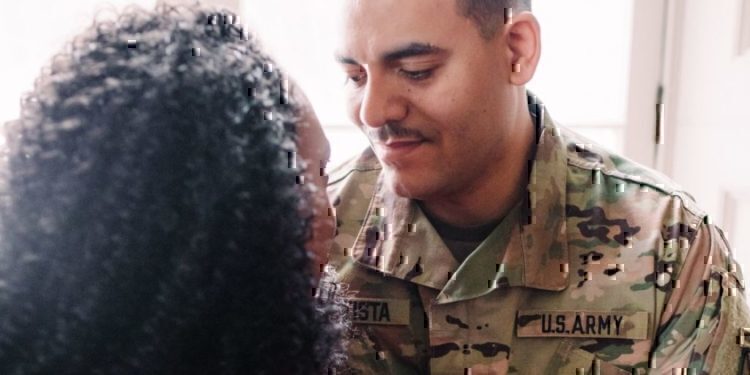Days after homecoming, the honeymoon affect wore off and we were arguing about things that didn’t matter. He was drinking a lot. His battle buddies were his new family, he spent most of his off time with them. Jealous? Maybe a little. He was gone for a year. I didn’t want to share him with anyone. As my pregnancy progressed, I spent many nights alone wondering where he’d gone, and hoping he wasn’t hurt somewhere. I was overwhelmed with stress. We weren’t adjusting well, and we both knew it. He was suffering from PTSD.
Have you ever experienced a homecoming like this? I know we don’t talk about it much, but we should. There are ways you can make the transition pleasant, productive, and a way that is progressive long term.
Post Deployment Counseling
You don’t need to have something wrong to get advice. You can talk about expectations and ways to deal with issues, if they arise. Visit Military One Source to get in touch with someone in your area. Allow some time and space for both of you to reacclimate into life, together. Talk about the Five Love Languages. Maybe you or your spouse’s love language changed since they’ve left. The things that made them happy before, may not be the same after deployment.
Redeploying with Children
If you have children, consider making your transition, a soft one. Don’t make a big to do about your spouse’s return. Allow them all to naturally reintegrate into each other’s lives. Don’t change your family’s life completely when your spouse comes home. Placing the expectations of your spouse’s return onto your children, can be devastating. We want to surprise our children, tell them all the fun things mommy or daddy will do when they return, but this can create disappointment if those expectations are not met. Let your spouse come home and be involved in the planning of the activities you all will do as a family. This also helps your spouse feel included, and not pressured into doing things they may not want to do.
Lastly, if your spouse isn’t adjusting well, encourage them to get help. There’s no shame in wanting to better themselves. The same goes for you. If you are having ill feelings or things don’t seem okay. Get help before the situation begins to progress negatively.
Being in a military marriage is tough. But as military spouses, we are resilient and can cultivate relationships and communities anywhere we go. Let your marriage be a true testament of love of resilience. Remember to communicate openly and honestly. This is the only way you can maintain a true connection with your partner.
You can love hard, without making your love, hard.








